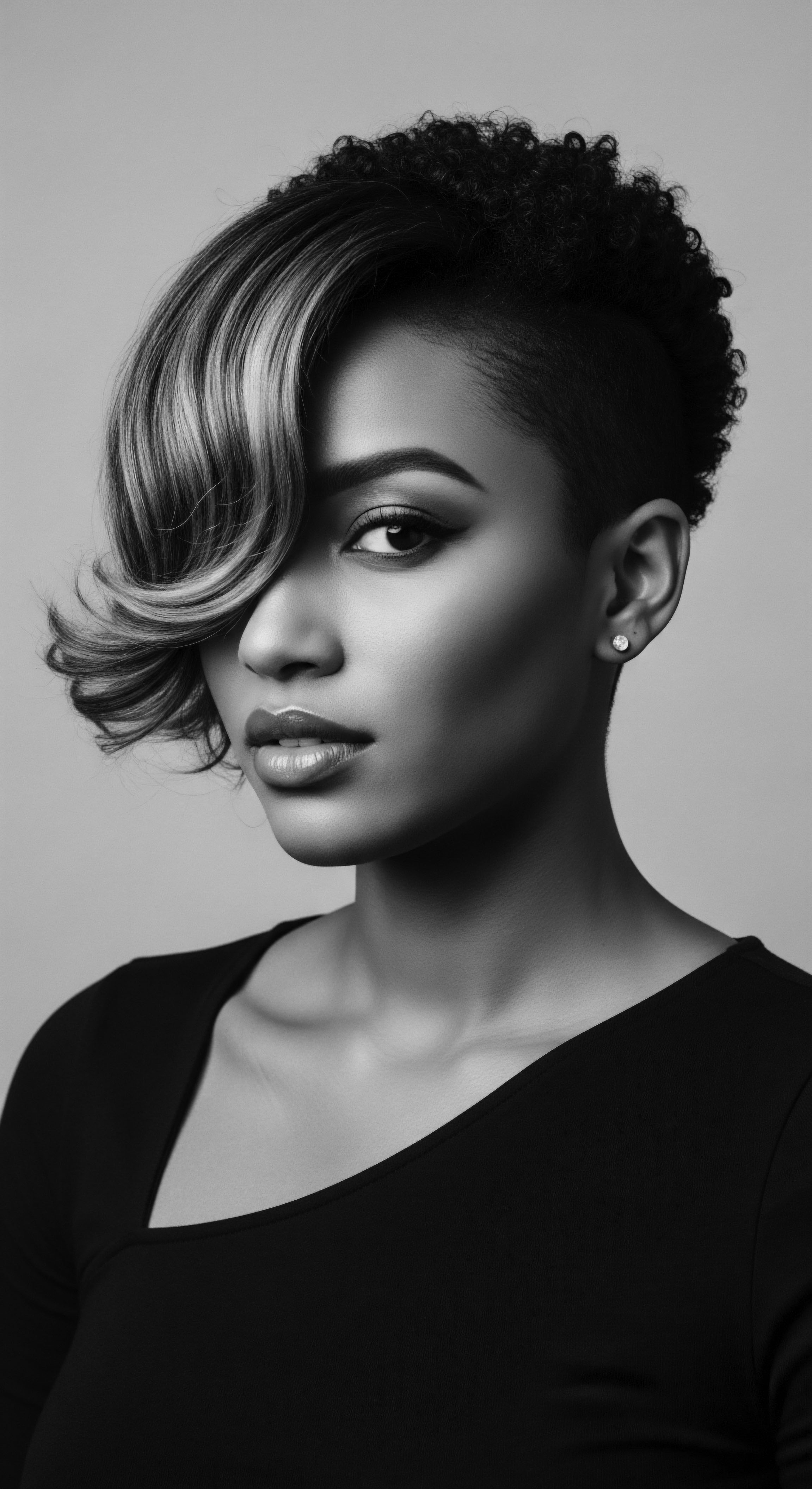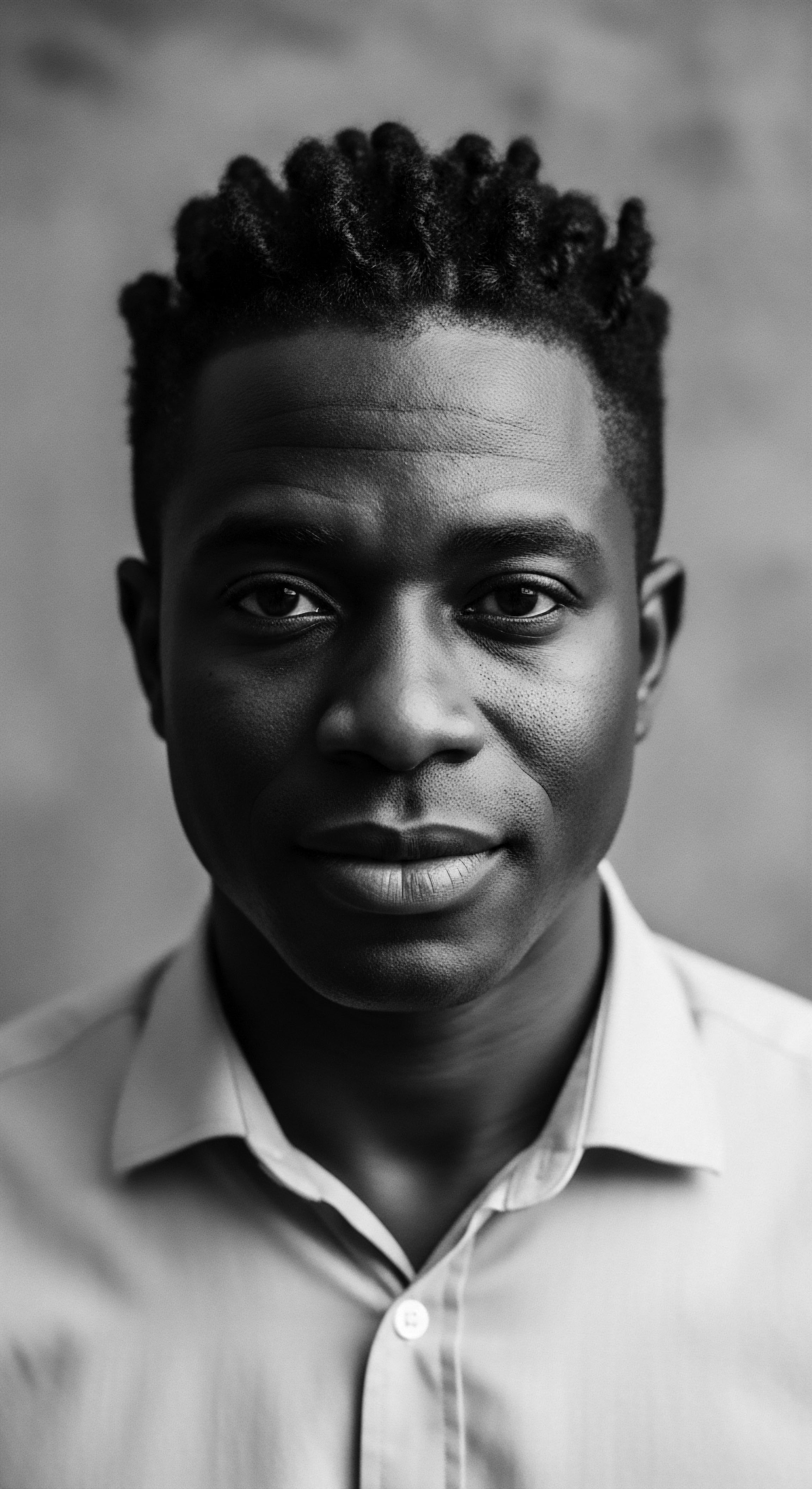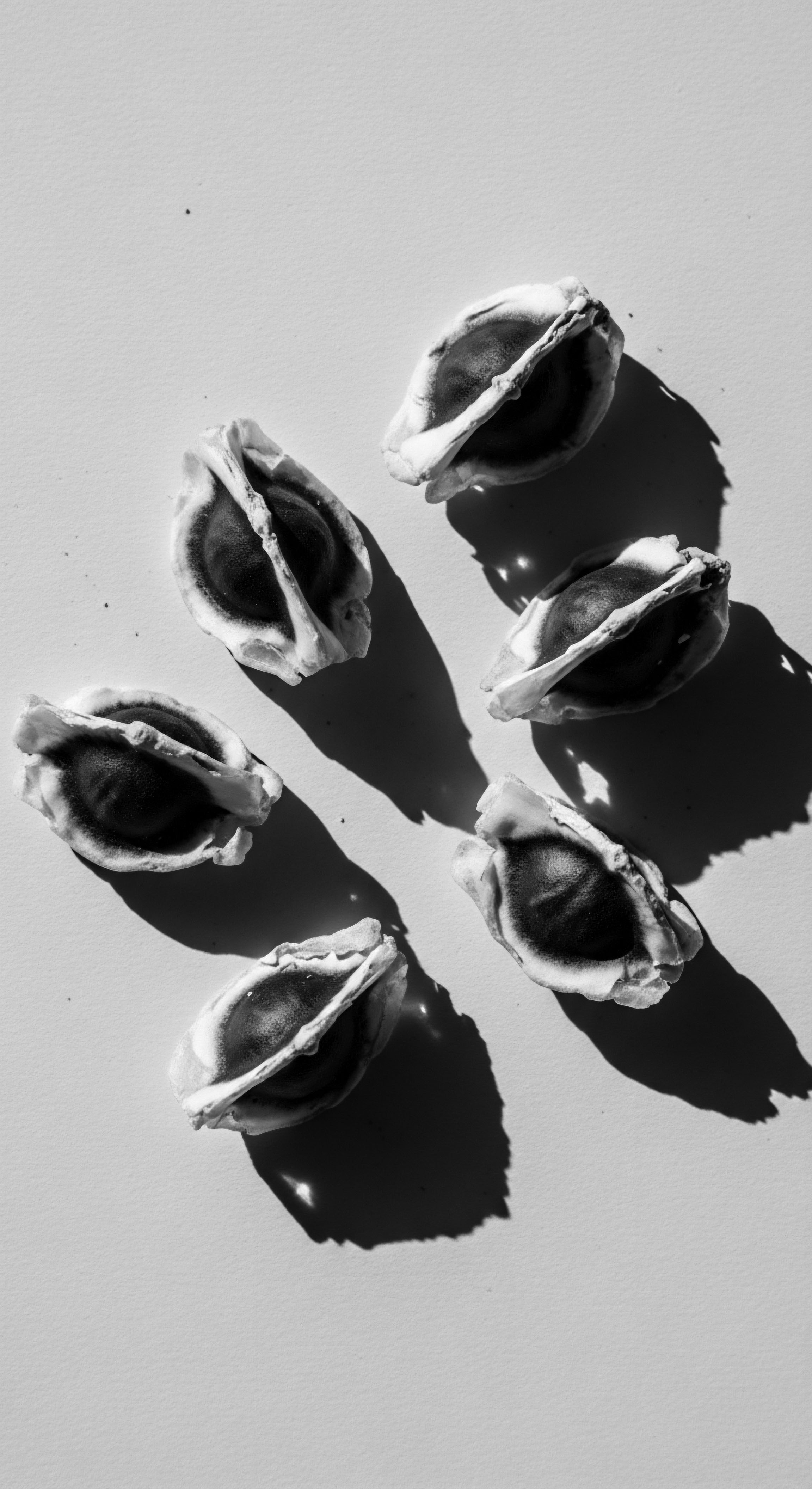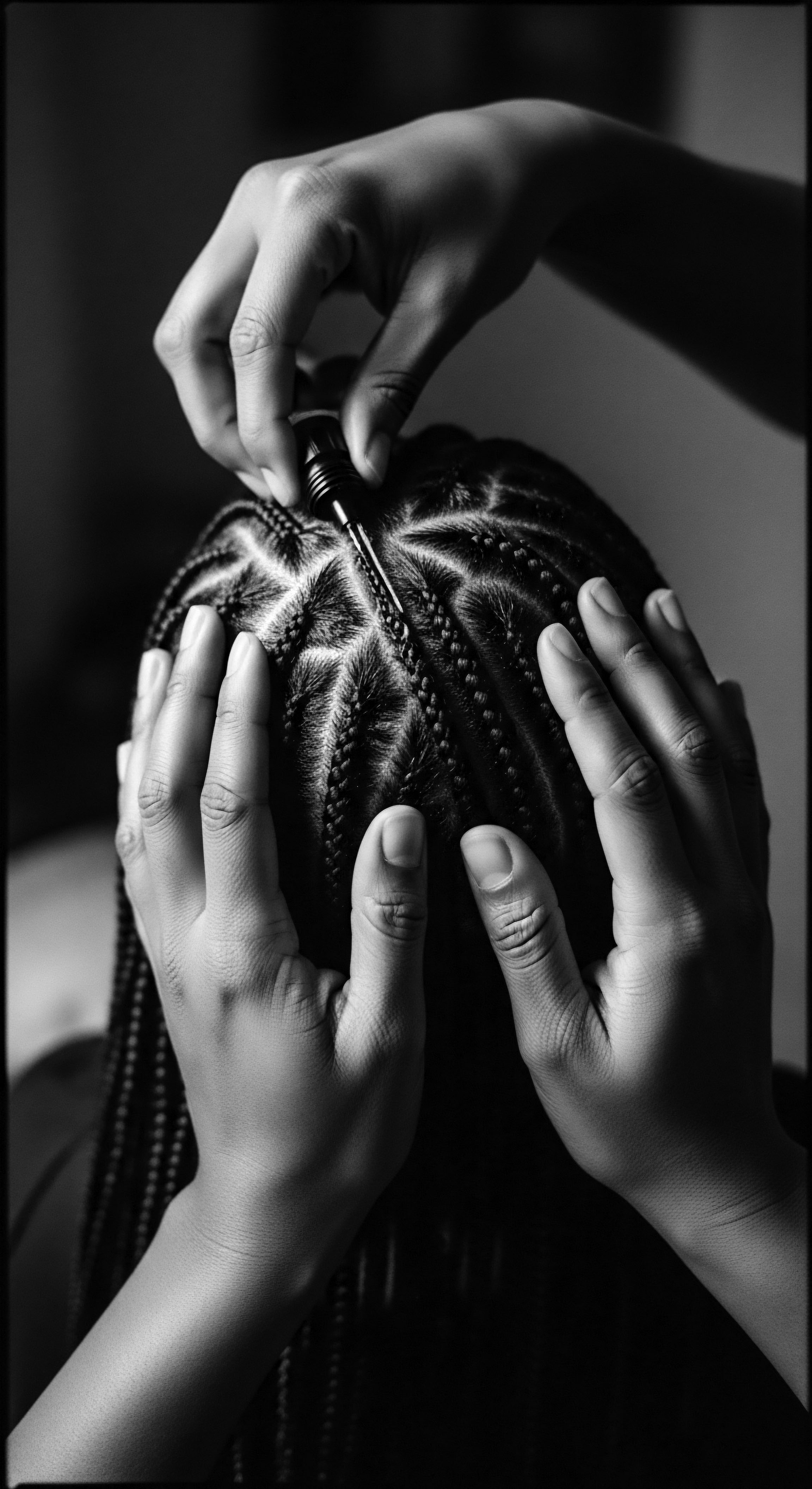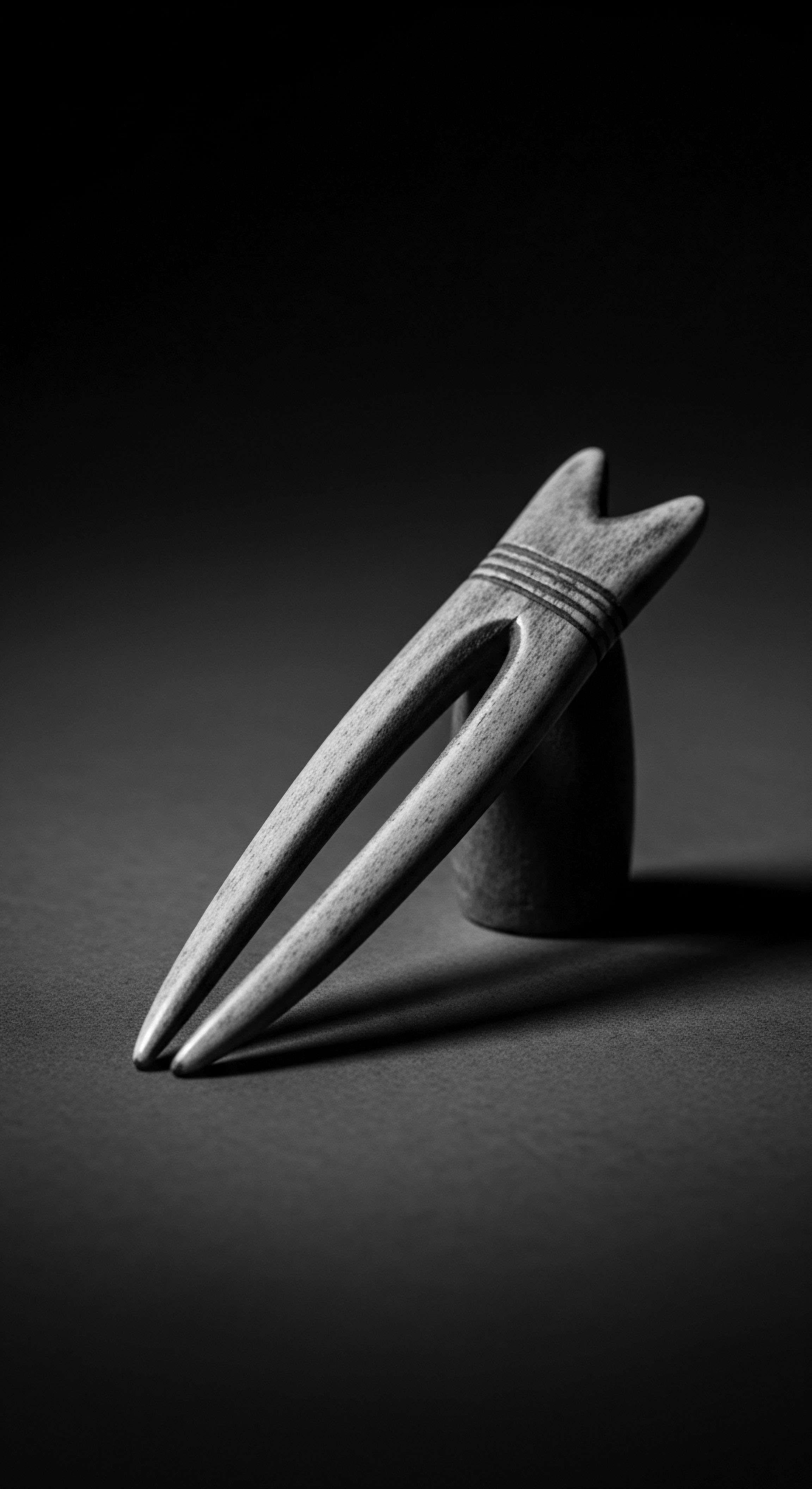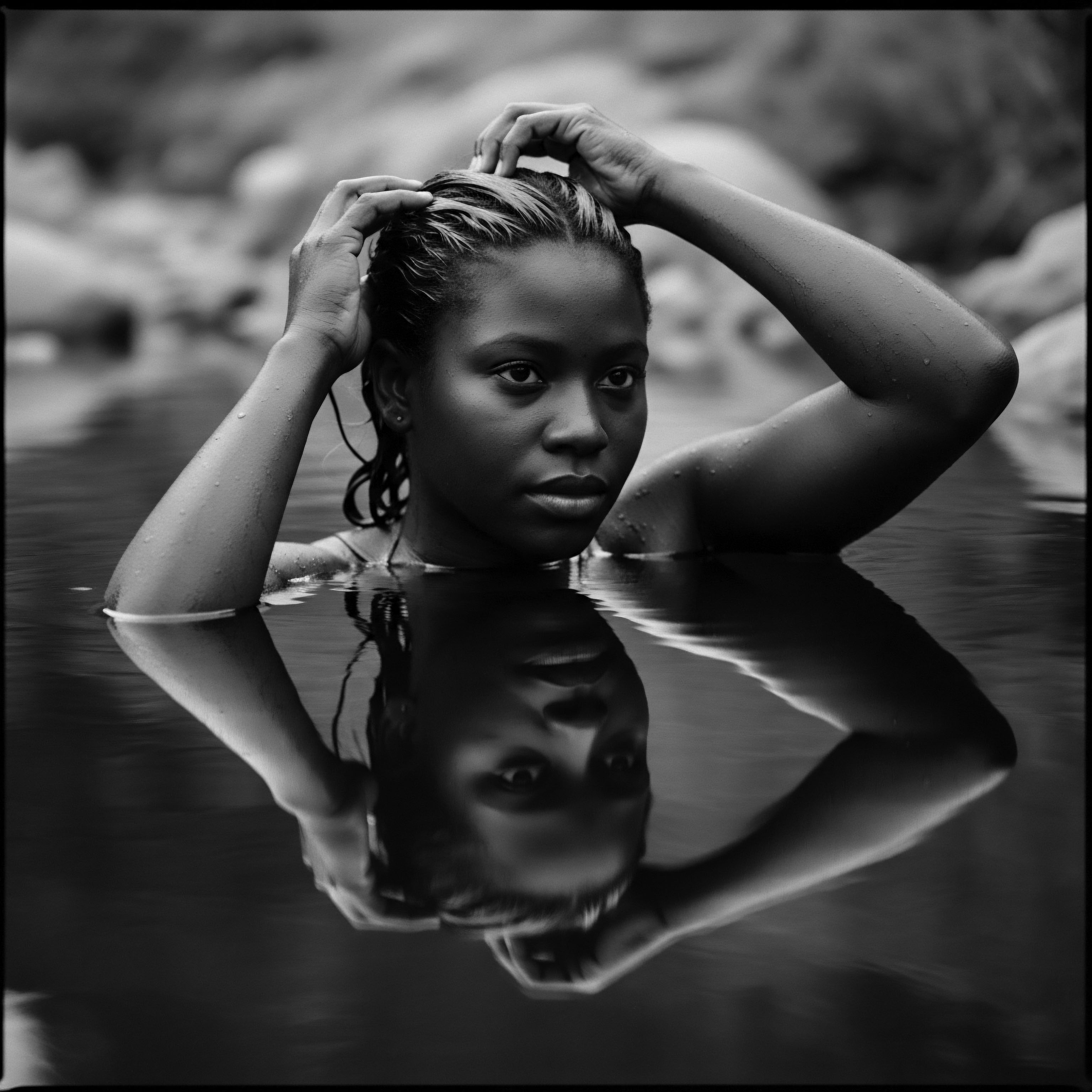
Fundamentals
The concept of Igbo Hair extends far beyond mere biological filaments; it stands as a profound declaration of identity, a living chronicle etched into the very strands of an ancestral legacy. Within Roothea’s discerning archive, the designation ‘Igbo Hair’ represents more than a specific texture or curl pattern; it encompasses the collective wisdom, the communal rituals, and the deeply personal connection to hair that has been cultivated across generations within the Igbo cultural sphere. It is a testament to the intricate relationship between human existence and the natural world, where hair serves as a conduit for spiritual belief, social standing, and communal solidarity.
This initial interpretation of Igbo Hair invites us to consider its most straightforward sense: the physical characteristics often associated with hair originating from individuals of Igbo descent. These characteristics typically present as a spectrum of tightly coiled to deeply curled textures, possessing a natural resilience and a propensity for volume. Yet, the true definition of Igbo Hair, even at its foundational level, is not solely about its elemental biology. It is also about the historical methods of care, the communal practices of styling, and the inherent significance placed upon hair as a visible marker of heritage.
Igbo Hair signifies a rich interplay of inherent hair characteristics and a deeply rooted cultural heritage that views hair as a living extension of identity and ancestral wisdom.
For those beginning to comprehend its vastness, Igbo Hair is a descriptor that immediately calls to mind the profound care traditions passed down through time. These traditions, often centered on natural ingredients and meticulous styling techniques, speak to a deep understanding of the hair’s unique requirements. The communal act of hair dressing, a common occurrence in Igbo households, becomes a quiet yet powerful affirmation of belonging, a space where stories are shared, and ancestral knowledge is transferred from elder to youth. The care extended to Igbo Hair is not simply for aesthetic appeal; it is a ritualistic act of honoring one’s lineage, a tender acknowledgement of the continuity of life itself.
The earliest forms of this hair’s meaning were tied to daily life and spiritual understanding. Traditional Igbo societies recognized hair as a conduit to the divine, a crown that held both visible and invisible power. Hair was never simply a physiological outgrowth; it was a symbolic landscape upon which personal and communal narratives were inscribed.
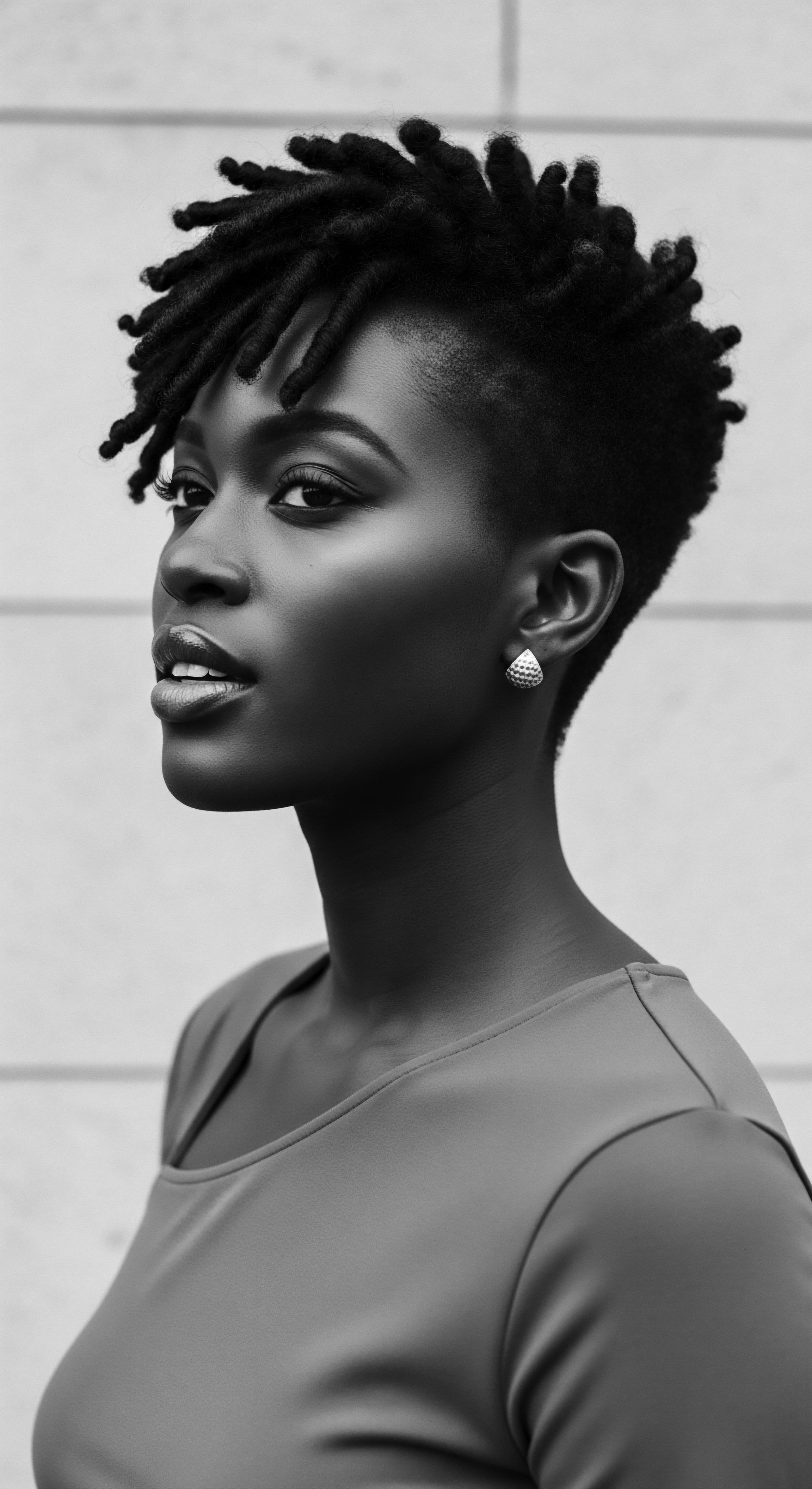
Ancestral Care and the Natural World
The ancestral approach to nurturing Igbo Hair was intrinsically linked to the surrounding environment. The forests and fields provided a rich bounty of ingredients, each chosen for its specific beneficial properties. These natural components were not merely applied; they were understood, their inherent qualities respected and utilized in harmony with the hair’s natural disposition. This traditional knowledge, honed over centuries, represents a sophisticated system of textured hair care that predates modern scientific classifications, yet often aligns with their principles.
- Palm Kernel Oil ❉ Revered for its deep conditioning properties, it was traditionally applied to hair to provide moisture and promote softness. Its use speaks to an intimate knowledge of emollient benefits.
- Black Soap (Ose Nsokpo) ❉ Crafted from plantain skins, cocoa pods, and other natural ashes, this cleansing agent offered a gentle yet effective way to purify the scalp and hair, respecting its delicate structure.
- Aloe Vera ❉ Employed for its soothing and hydrating qualities, particularly beneficial for maintaining scalp health and promoting hair pliability.
- Shea Butter ❉ A cherished sealant, providing a protective barrier against environmental elements and helping to retain moisture within the hair strands.
These elements were not just ingredients; they were parts of a living library of traditional wellness, passed down through the generations. The selection and preparation of these substances were themselves rituals, imbuing the hair care process with a deeper significance beyond mere hygiene or adornment.
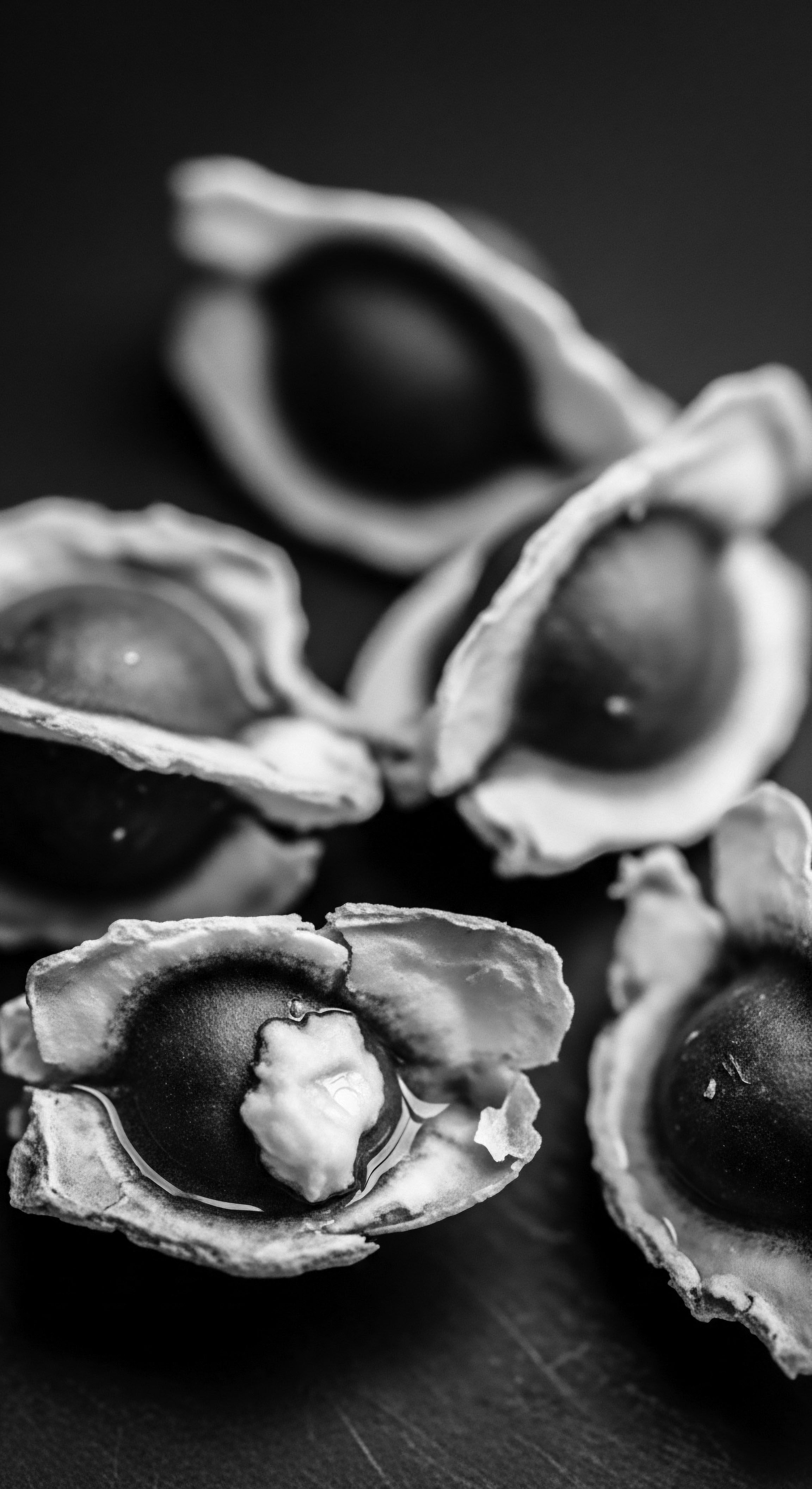
Intermediate
Moving beyond its fundamental understanding, the interpretation of Igbo Hair deepens to encompass its profound societal role and the evolution of its symbolism across different historical junctures. It is here that we recognize Igbo Hair as a dynamic expression of social status, marital state, spiritual conviction, and communal identity. The way hair was styled, adorned, and maintained served as a visual language, communicating intricate details about an individual’s life and their place within the collective. This delineation of Igbo Hair highlights its active participation in the cultural fabric.
The significance of hair within Igbo communities was often reflected in elaborate coiffures, each carrying specific connotations. These styles were not static; they changed with age, ceremony, and personal milestones. For instance, the transition from maidenhood to marriage was frequently marked by distinct alterations in hairstyle, publicly acknowledging a woman’s new role and responsibilities. The preparation of these elaborate styles often required considerable time and skill, transforming hair dressing into a communal activity, a space for intergenerational bonding and the transmission of cultural practices.
Igbo Hair serves as a complex visual lexicon, articulating social standing, spiritual beliefs, and life’s transitions through its varied styles and adornments.
The care of Igbo Hair, therefore, was never a solitary act. It was a deeply communal undertaking, performed by mothers, sisters, aunts, and friends. This collective effort not only ensured the health and beauty of the hair but also strengthened social bonds and reinforced the communal spirit.
The gentle touch, the shared laughter, the whispered stories during a hair-braiding session ❉ all contributed to the profound connection between hair, individual, and community. This communal aspect of hair care speaks volumes about the collective identity woven into each strand.
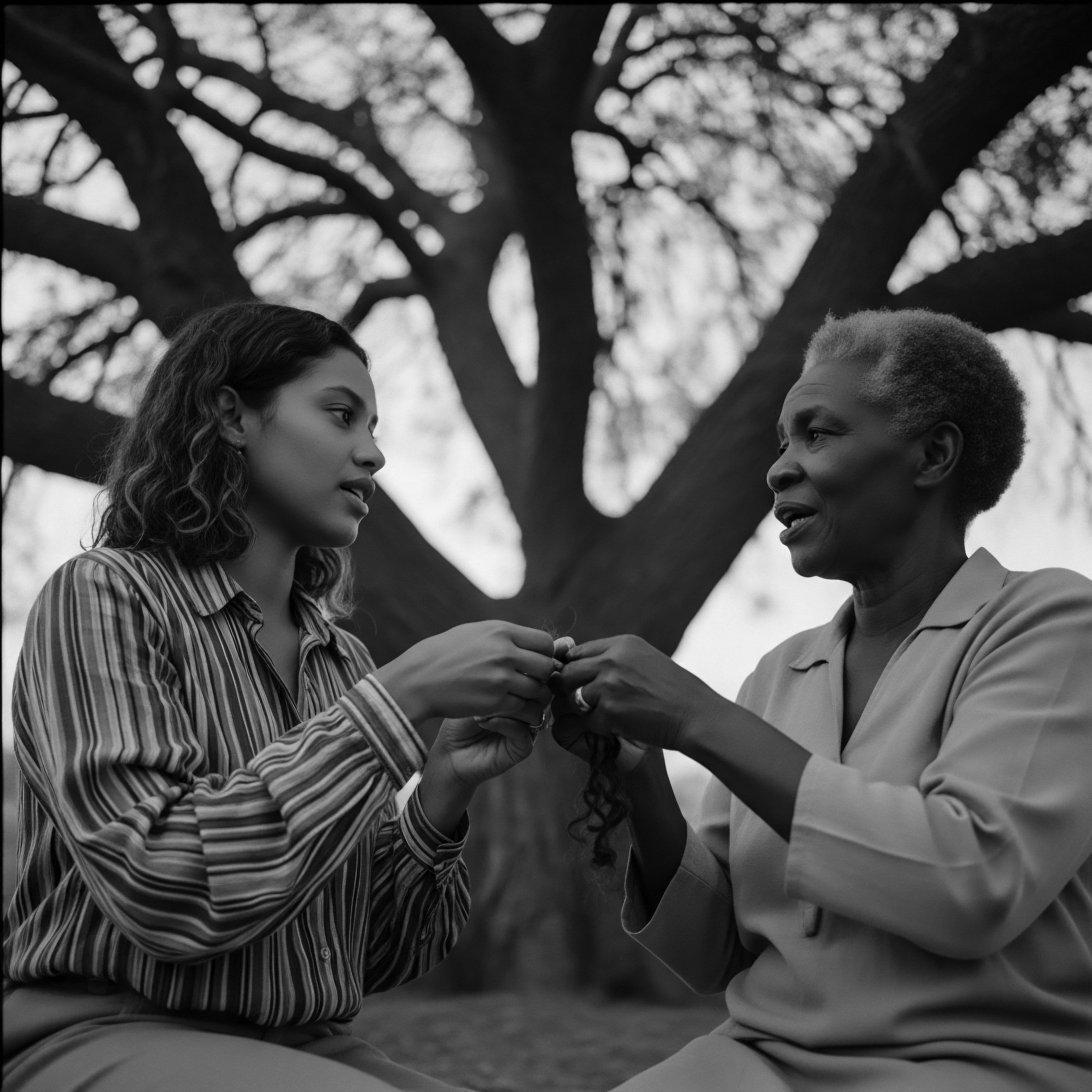
Hair as a Symbol of Resilience and Adaptation
The story of Igbo Hair also bears witness to periods of immense change and adaptation. During the era of colonial influence, traditional hair practices faced pressures from imposed Western beauty standards and the suppression of indigenous cultural expressions. Yet, even in the face of such challenges, the resilience of Igbo hair traditions persisted.
Often, ancestral practices went underground, preserved within families and communities as quiet acts of cultural preservation. This historical context provides a deeper meaning to the continuity of these practices today.
The capacity of Igbo Hair to adapt and endure speaks to the enduring spirit of the people themselves. It represents a continuous dialogue between the past and the present, where ancient wisdom finds new expressions in contemporary settings. The return to natural hair movements, particularly within the Black diaspora, often draws strength and inspiration from these ancestral traditions, recognizing the deep historical roots of textured hair pride.
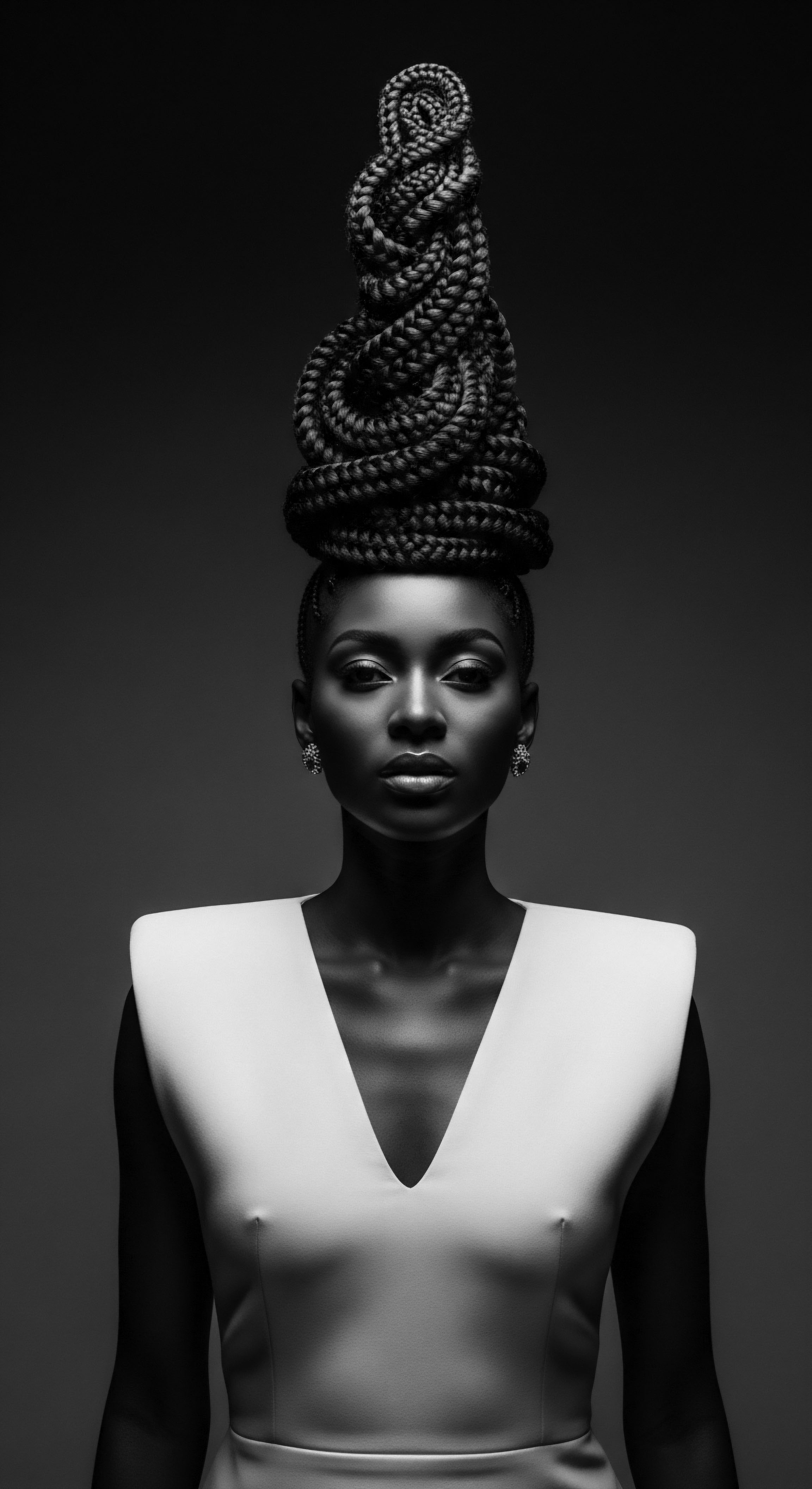
Academic
The academic elucidation of Igbo Hair transcends superficial descriptions, delving into its profound anthropological, sociological, and even biological implications within the vast tapestry of human experience. From this elevated perspective, Igbo Hair is defined not merely as a genetic predisposition to certain curl patterns, but as a dynamic cultural artifact, a locus of ancestral memory, and a site of continuous negotiation between individual identity and collective heritage. Its meaning is thus layered, revealing a complex interplay of environmental adaptation, socio-political currents, and deeply embedded spiritual cosmologies. This comprehensive delineation demands an examination of its historical evolution, its material culture, and its symbolic resonance across time and diaspora.
At its core, the interpretation of Igbo Hair, particularly from an academic lens, necessitates a critical understanding of how textured hair has been perceived, valued, and, at times, marginalized within various historical and global contexts. It challenges reductive categorizations, insisting instead on a holistic view that acknowledges the sophisticated indigenous knowledge systems that shaped hair care long before the advent of modern trichology. The profound importance of this subject lies in its capacity to illuminate the enduring power of cultural practices in preserving identity amidst forces of assimilation and erasure. The historical record, often fragmented, nevertheless offers compelling glimpses into the centrality of hair in Igbo life.
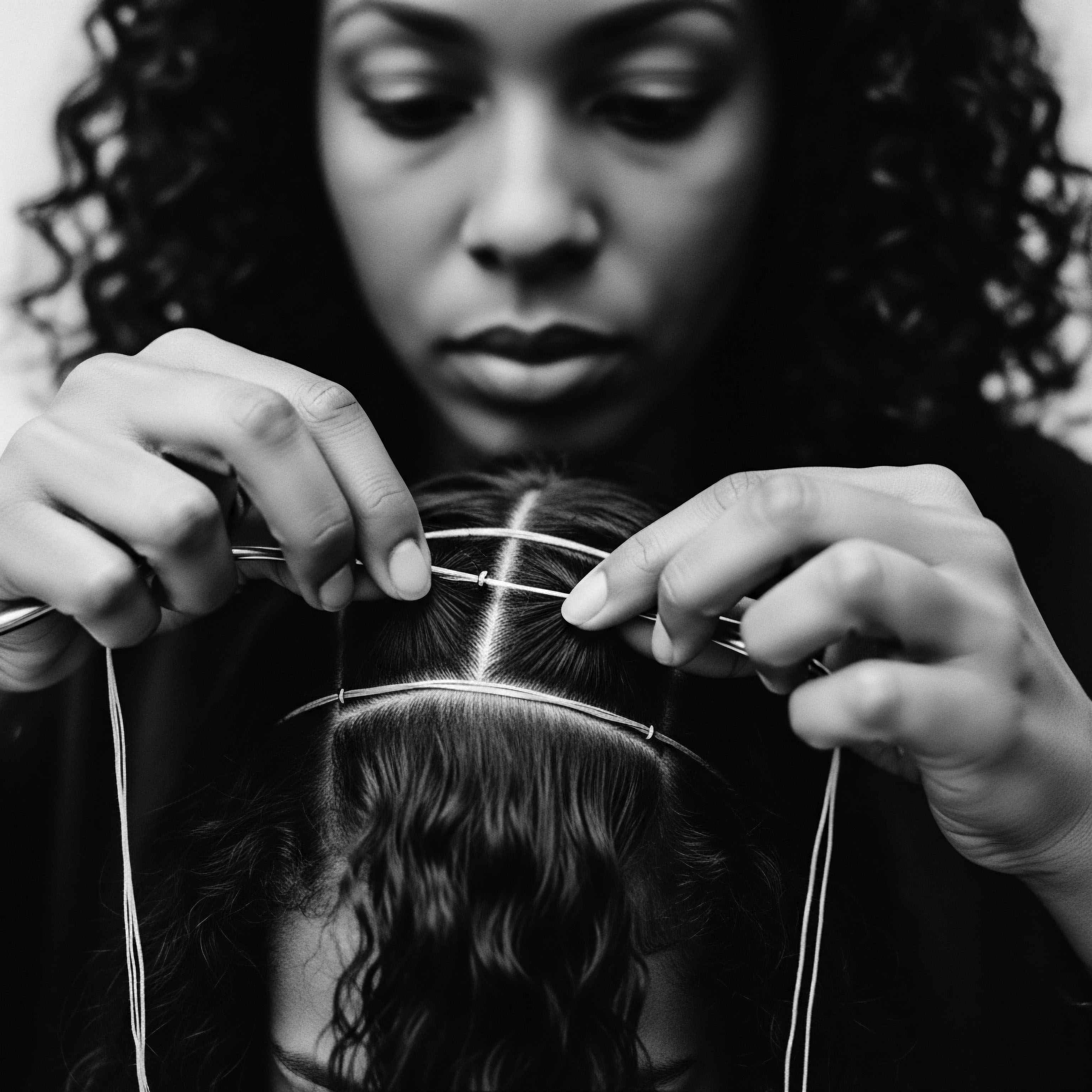
Echoes from the Source: Biological Foundations and Ancestral Adaptation
From a biological standpoint, the hair textures predominantly associated with Igbo populations, characteristic of many West African ancestries, exhibit specific morphological traits. These include a flattened elliptical cross-section of the hair shaft, a higher density of disulfide bonds, and a tendency for the hair to grow in tight, helical coils. These structural properties contribute to the hair’s inherent strength and its capacity for significant volume, yet also render it more susceptible to dryness and breakage if not managed with specific, moisture-retaining techniques.
The ancestral care practices, honed over millennia, represent an intuitive, empirical science that addressed these very biological realities. For instance, the consistent use of occlusive agents like shea butter or emollients from indigenous plant oils was not a random act but a sophisticated response to the hair’s natural porosity and tendency to lose moisture.
The genetic prevalence of tightly coiled hair in West African populations, including the Igbo, is a testament to generations of evolutionary adaptation. This hair type provided significant protection against intense solar radiation and offered insulation in warm climates, contributing to scalp health. The ancestral knowledge surrounding the cultivation of these hair types was therefore not merely cosmetic; it was a practical application of environmental wisdom, deeply interwoven with survival and well-being.
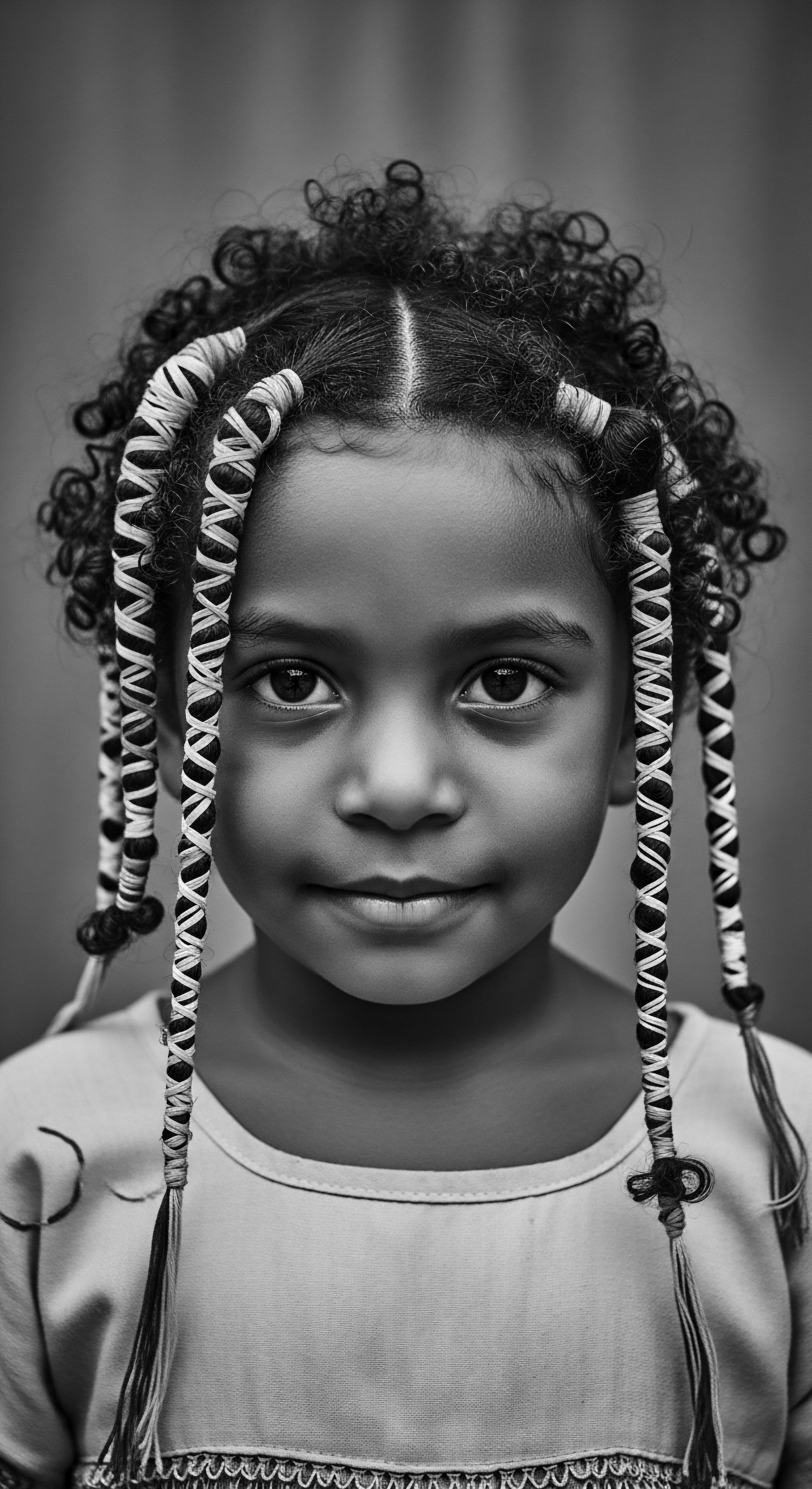
The Tender Thread: Hair as a Living Canvas of Identity and Community
The sociological interpretation of Igbo Hair emphasizes its role as a dynamic medium for social communication. Hair styles served as non-verbal cues, indicating age, marital status, social rank, and even political affiliation. The intricate designs, often created through hours of communal effort, were not simply decorative; they were deliberate statements of identity and belonging. The communal act of hair dressing, a cornerstone of Igbo social life, transcended mere beautification.
It was a ritualistic space for intergenerational pedagogy, where elders transmitted cultural narratives, ethical principles, and practical skills to younger generations. This practice fostered a deep sense of solidarity and collective identity.
A particularly illuminating historical example of hair’s profound connection to Igbo heritage and its expressive power can be found in the traditional practice of incorporating ‘uli‘ art into hair adornment. While ‘uli’ is most commonly recognized as a form of body painting, its intricate geometric and curvilinear patterns were often mirrored and integrated into the partings and braided structures of Igbo hair. As documented by scholars like Chike Aniakor (1978) in his foundational work on Igbo art, these patterns were not merely aesthetic; they were imbued with profound spiritual and cosmological significance. Designs such as ‘agwo‘ (snake), representing duality and transformation, or ‘okala-aka‘ (half-hand), symbolizing creation and destiny, were meticulously woven into the hair, transforming the coiffure into a living canvas of ancestral wisdom.
This practice underscores how Igbo hair was never separate from the spiritual and philosophical dimensions of life, serving as a direct link to the divine and a visual affirmation of an individual’s place within the cosmic order. The suppression of such traditional artistic and hair practices during colonial rule represents a significant loss of cultural expression, yet the enduring memory and resurgence of these forms today speak to the resilience of Igbo heritage.
The historical integration of ‘uli’ patterns into Igbo hair designs powerfully illustrates hair’s role as a spiritual and cultural text, affirming identity and ancestral connections.
This cultural practice extended beyond aesthetic considerations into the realm of ancestral practices and spiritual beliefs. Hair, being the highest point of the body, was often regarded as a direct connection to the spiritual realm and ancestral spirits. Certain hairstyles were reserved for specific ceremonies or rites of passage, reflecting a deep reverence for the sacred dimensions of human existence.
The cutting or styling of hair could therefore carry immense symbolic weight, signifying mourning, celebration, or a new phase of life. The communal gathering for hair dressing was not just a social event; it was a spiritual gathering, a collective invocation of ancestral presence and blessing.
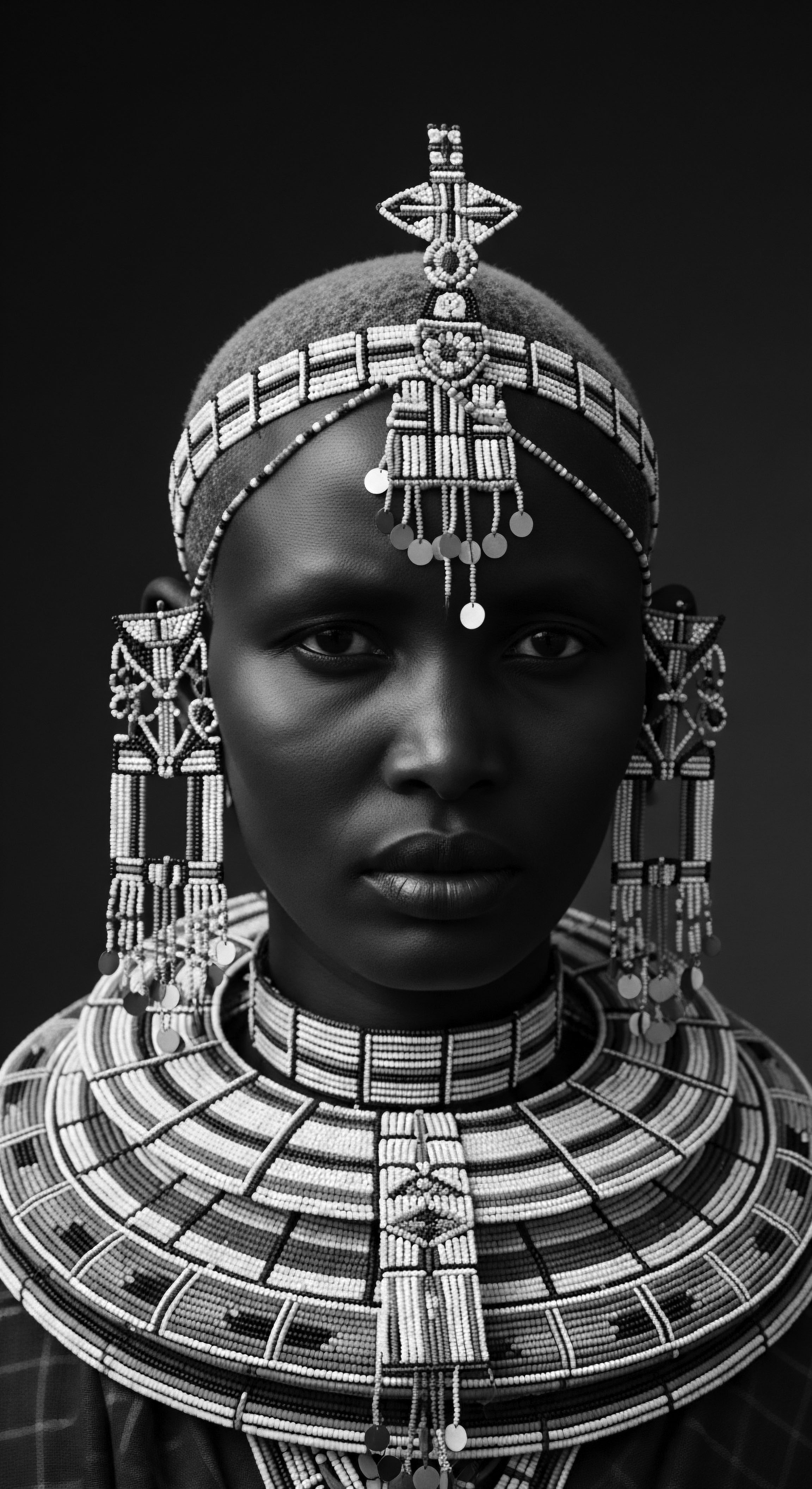
The Unbound Helix: Igbo Hair in the Modern Context and Diasporic Resonance
The meaning of Igbo Hair in contemporary global contexts extends into the complexities of identity politics and the ongoing discourse surrounding Black and mixed-race hair experiences. For many within the diaspora, reconnecting with Igbo hair traditions is a powerful act of reclaiming heritage and asserting cultural pride. It stands as a counter-narrative to historical pressures that often denigrated textured hair, advocating for its inherent beauty and cultural richness. The movement towards natural hair, while global, finds a particular resonance in the specific ancestral practices of groups like the Igbo, offering a tangible link to a rich, often suppressed, history of self-affirmation.
This contemporary resurgence is not merely a nostalgic return; it is a creative reinterpretation, adapting ancestral methods to modern lifestyles and products. The global accessibility of information allows for a deeper investigation into the scientific principles underlying traditional practices, validating their efficacy and promoting a more informed approach to textured hair care. The holistic understanding of hair wellness, rooted in ancestral wisdom, finds new relevance in discussions about self-care, mental health, and cultural connection.
The definition of Igbo Hair in the academic sphere is thus continually expanding, incorporating insights from ethnobotany, historical linguistics, and critical race theory. It recognizes the hair not just as a biological feature, but as a repository of cultural memory, a symbol of resistance, and a dynamic expression of an enduring heritage. The ongoing dialogue between ancestral knowledge and contemporary scientific understanding allows for a richer, more nuanced appreciation of the significance of Igbo Hair, both for those of Igbo descent and for the broader community invested in textured hair heritage.
Consider the ongoing dialogue within contemporary Black hair studies regarding the intersection of ancestral practices and modern scientific understanding. For instance, the traditional Igbo emphasis on natural oils and protective styles, once dismissed by colonial narratives, is now largely validated by trichological research on maintaining moisture and minimizing mechanical stress on tightly coiled hair. This intellectual affirmation of ancestral practices underscores the profound value of indigenous knowledge systems. The continued exploration of Igbo hair traditions offers not just historical insight but also practical, culturally relevant solutions for textured hair care today.
The significance of Igbo Hair is further amplified when considering its role in the global natural hair movement. It serves as a specific, tangible link to a broader African aesthetic and philosophical approach to hair, challenging universalized beauty standards and advocating for the celebration of diverse hair textures. The act of wearing one’s hair in styles reminiscent of ancestral Igbo practices becomes a powerful political statement, a declaration of self-acceptance, and a reclamation of cultural narratives.
The academic pursuit of understanding Igbo Hair is not just an exercise in historical retrieval; it is an active contribution to the ongoing redefinition of beauty, identity, and wellness within the context of textured hair heritage. It compels us to recognize the profound meaning embedded in every coil and curve, a meaning that speaks to centuries of resilience, creativity, and ancestral wisdom.
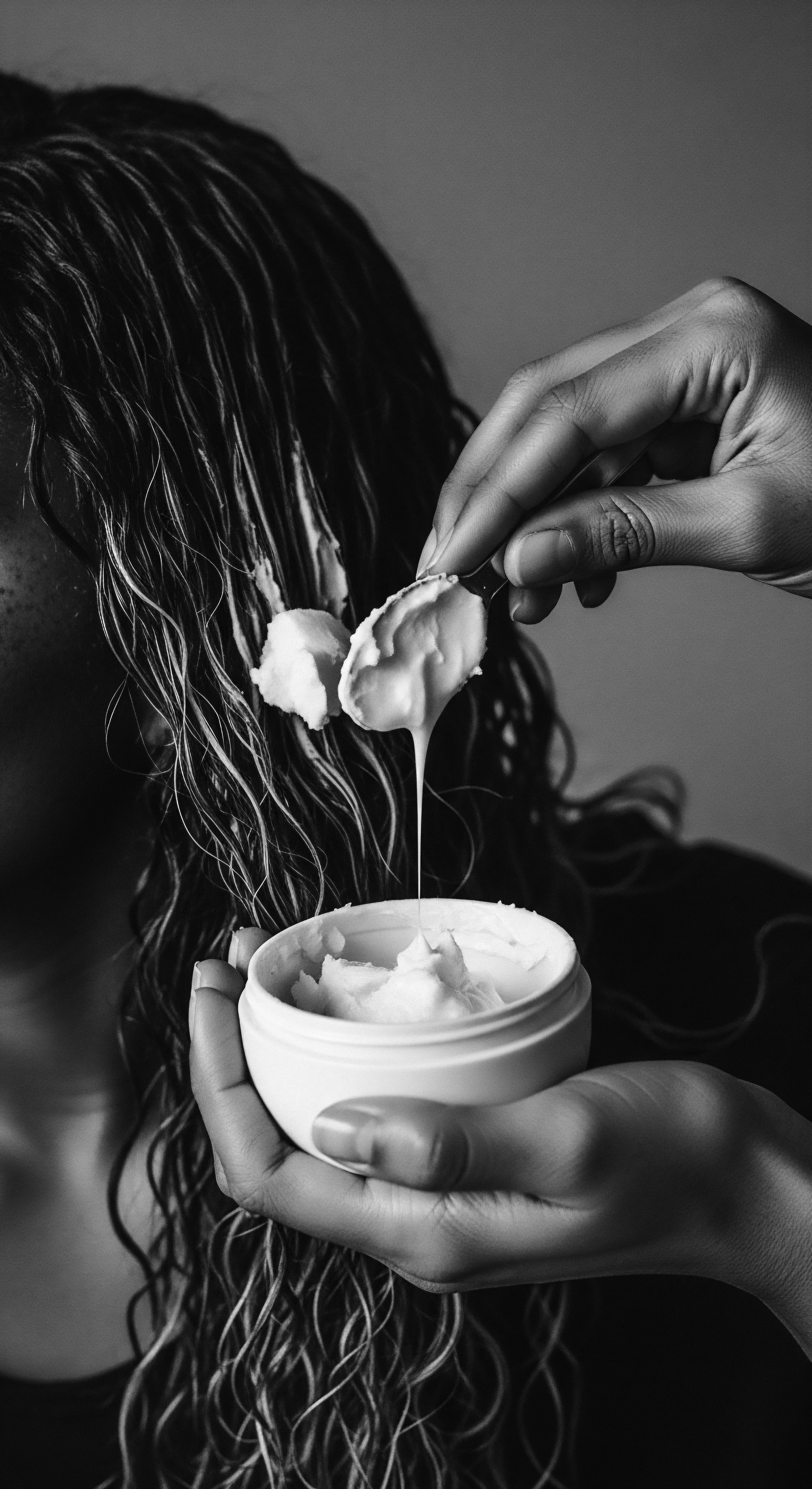
Reflection on the Heritage of Igbo Hair
As we draw our exploration of Igbo Hair to a close, we are left with a resonant understanding that this concept is far more than a biological or aesthetic category. It is a living, breathing archive, pulsating with the ‘Soul of a Strand’ ethos, each filament holding the echoes of ancestral whispers and the vibrant pulse of enduring heritage. The journey through its fundamental characteristics, its societal significance, and its academic complexities reveals a profound truth: Igbo Hair is a testament to the continuous dialogue between past and present, a visible manifestation of cultural resilience and the deep wisdom of generations.
The meaning of Igbo Hair, therefore, is not fixed; it is a dynamic legacy, constantly being shaped by those who carry its lineage and those who seek to understand its depth. It speaks to the universal human desire for connection, for belonging, and for the affirmation of one’s roots. The meticulous care rituals, the intricate styling practices, and the profound symbolism associated with Igbo Hair are not relics of a bygone era; they are vital, living traditions that continue to inspire and inform the textured hair experience across the globe.
This enduring heritage reminds us that hair is never merely an adornment; it is a sacred part of self, a vessel for stories, and a bridge to the ancestral realm. The celebration of Igbo Hair is, at its heart, a celebration of identity, resilience, and the timeless beauty that blossoms from a deep reverence for one’s origins. It encourages a holistic approach to wellness, one that honors the body, the spirit, and the unbroken chain of ancestral knowledge. The journey of Igbo Hair, from elemental biology to profound cultural expression, continues to inspire a deeper appreciation for the boundless richness of textured hair heritage.
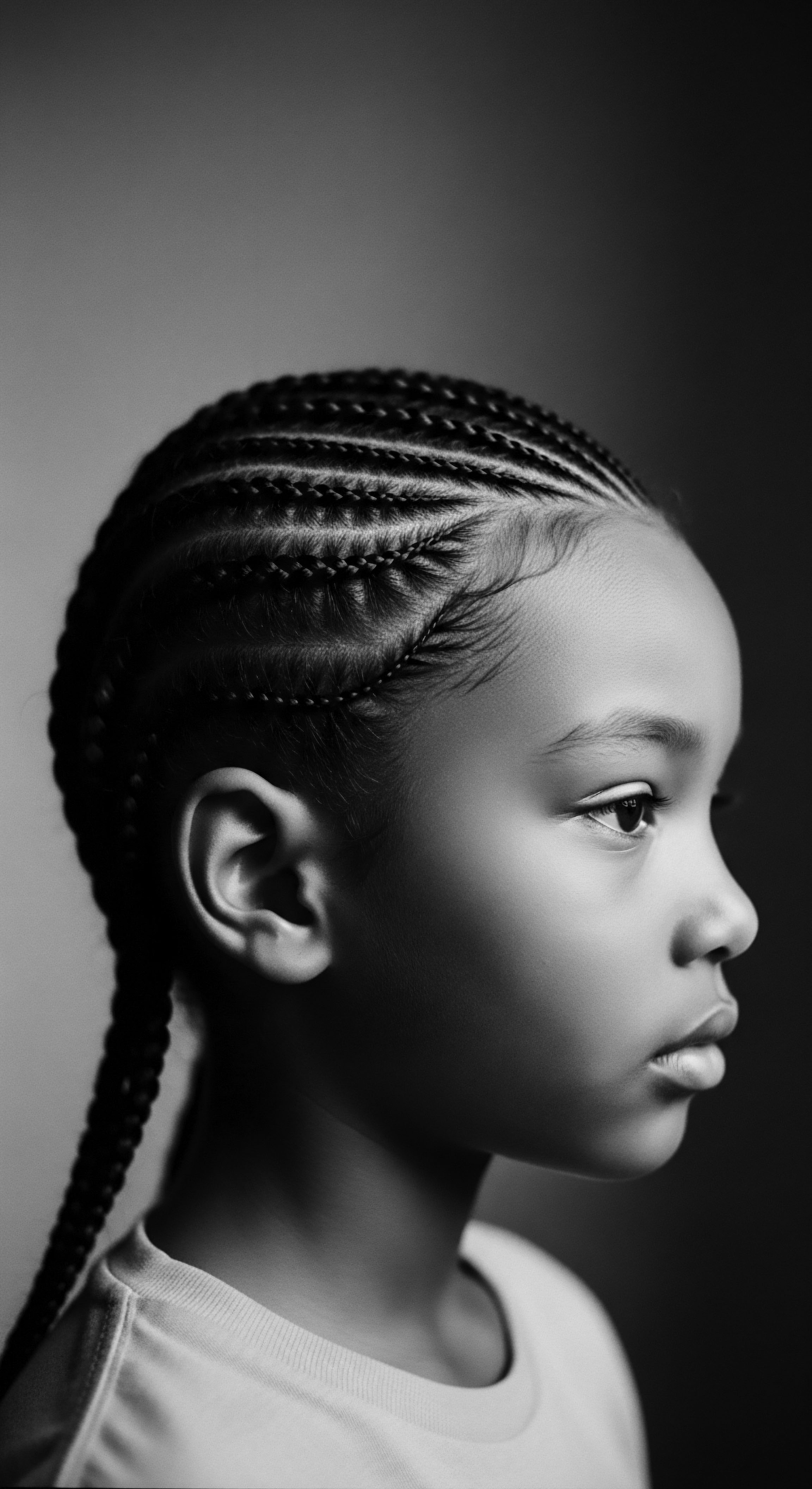
References
- Aniakor, C. (1978). Igbo Art as an African World View. University of Ibadan Press.
- Arinze, F. N. (1970). Sacrifice in Igbo Traditional Religion. Ibadan University Press.
- Basden, G. T. (1921). Among the Ibos of Nigeria: An Account of the Curious and Interesting Habits, Customs and Beliefs of a Little Known African People. Seeley, Service & Co. Limited.
- Ekechi, F. K. (1989). Tradition and Transformation in Eastern Nigeria: A Sociopolitical History of Owerri and Its Hinterland, 1902-1947. Kent State University Press.
- Okonkwo, R. (1980). African Traditional Hairdressing: Its Social Significance. Journal of Black Studies, 10(3), 329-342.
- Olupona, J. K. (2013). African Religions: A Comparative Approach. Oxford University Press.
- Uchendu, V. C. (1917). The Igbo of Southeast Nigeria. Holt, Rinehart and Winston.

